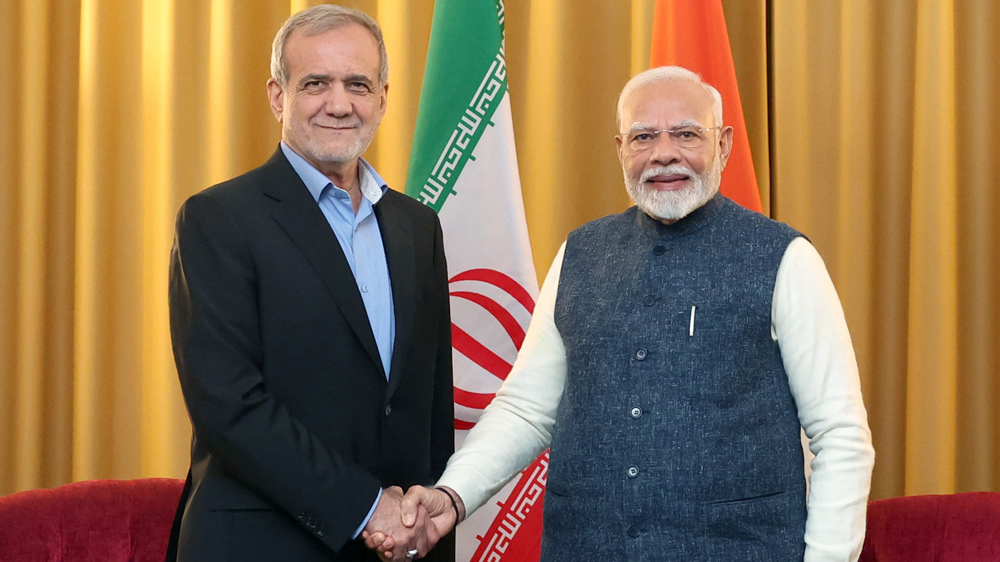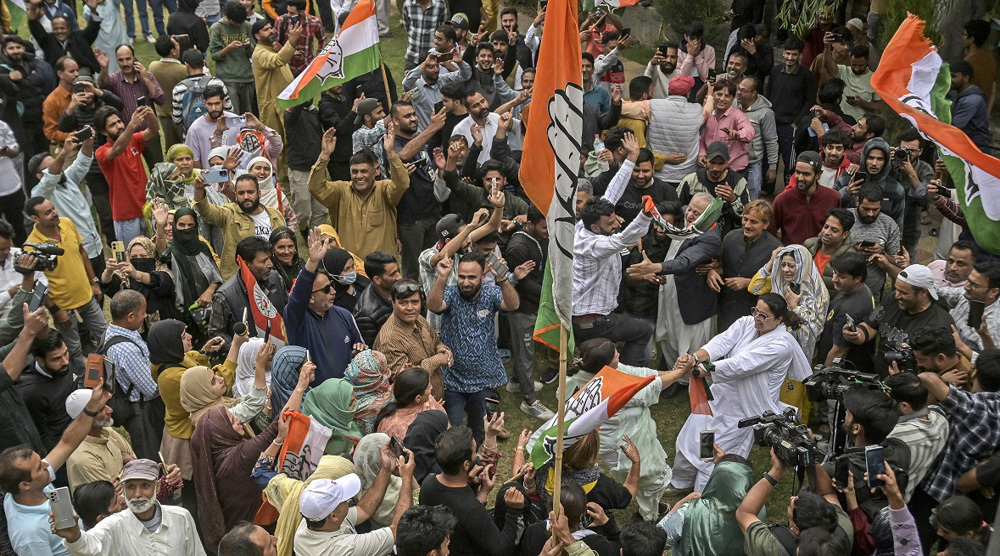Developments in India-controlled Kashmir amount to military coup: Activist to Press TV
A Kashmiri activist has criticized the New Delhi government’s recent decision to strip the disputed Kashmir region of its special constitutional status, saying it seems like the restive Muslim-majority Himalayan region has been taken over by the Indian army in a “military coup,” Press TV reports.
“I could say a military coup has taken place in Kashmir. The Indian army has over one million troops in that region. People have not been able to leave their homes because of a curfew,” Mohades Naghavi, a Kashmiri doctoral student at the University of Tehran, told Press TV on Sunday.
He made the remarks as a group of foreign students gathered in front of the UN office in the Iranian capital, Tehran, to voice their protest at the world body’s silence in face of severe restrictions imposed by New Delhi on the India-controlled part of Kashmir in the aftermath of its decision on August 5 to revoke the region’s autonomous status.
Elsewhere in his remarks, he said Kashmir’s residents were struggling under curfew and unprecedented security restrictions.
“What is currently taking place in Kashmir is much worse than what you hear and see in the media. It is now for 14 days that phones and internet are blocked. We are worried about our families”
On August 5, Indian Prime Minister Narendra Modi delivered a surprise executive decree to strip the India-controlled portion of the Muslim-majority Himalayan region of its special status. Modi has claimed that the decision was necessary for Kashmir’s economic development and to stop “terrorism.”
After the decision to scrap Kashmir’s autonomy, Indian authorities imposed security restrictions on Kashmir, fearing massive protests against Modi’s move.
New Delhi government dispatched thousands of additional troops to the Himalayan region, declared a strict curfew, shut down telecommunications and internet services, and arrested political leaders and pro-independence campaigners.
The Indian Home Ministry tweeted last week that the restrictions “were being eased out in a phased manner” in the valley.
Latest media reports, however, said Indian authorities reimposed restrictions on movement in major parts of Kashmir's biggest city, Srinagar, on Sunday after violent overnight clashes between residents and police in which dozens were injured.
They also reversed a decision to allow internet and mobile phone use in parts of the region amid concerns about the spread of rumors online.
In the past 24 hours, there has been a series of protests against New Delhi’s August 5 revocation of Jammu and Kashmir State’s autonomy.
At least two dozen people were admitted to hospitals with pellet injuries after violent clashes broke out in the old city on Saturday night.
India’s measures have drawn criticism from kashmir's residents, Pakistan, human rights groups and the UN.
UN Secretary-General Antonio Guterres has already urged all parties to exercise restraint in Kashmir.
The Himalayan region is divided between India — which rules the populous Kashmir Valley and the Hindu-dominated region around Jammu city — and Pakistan — which controls a wedge of territory in the west.
Both countries claim all of Kashmir and have fought three wars over the territory.
US vetoing of Gaza ceasefire resolution ‘disgraceful’: Iran’s UN envoy
VIDEO | IAEA adopts anti-Iran resolution tabled by E3
VIDEO | Iran's president urges Pope to help end Israel's onslaught in Gaza
Iran's senior legal official: ICC arrest warrant for Netanyahu ‘great victory'
Nov. 21: ‘Axis of Resistance’ operations against Israeli occupation
VIDEO | Israeli forces storm West Bank’s Jenin again, target civilians
Iran activates advanced centrifuges after IAEA's 'unjust' resolution
VIDEO | Press TV's news headlines












 This makes it easy to access the Press TV website
This makes it easy to access the Press TV website